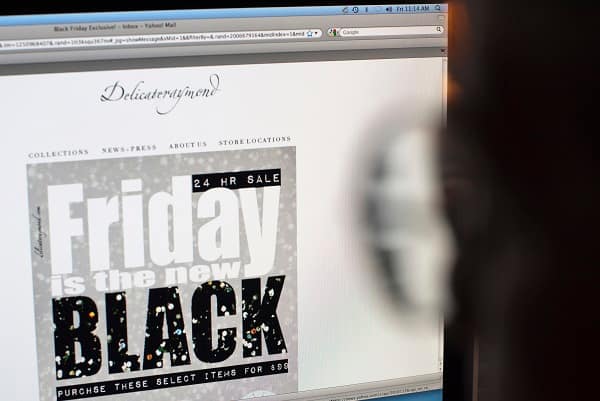Shoppers searching for Black Friday deals are being encouraged to follow top tips to stay safe and prevent cyber criminals cashing in on the annual sales rush.
With Black Friday scheduled on Friday 24th November, Kaspersky is urging shoppers to be wary of a surge in the use of voucher codes and newsletter emails as they hunt for discount offers.
This November, shoppers are expected to head online in great numbers to buy discounted home appliances and tech products during Black Friday.
Surveying 2,000 consumers across the UK, Kaspersky research reveals that over half (55%) rely on voucher codes to find the very best deals. The statistic raises serious concerns over consumer security with fake coupons and voucher codes revealed by Kaspersky researchers to be a popular festive season tactic used by cyber criminals to obtain personal details.
Scams involve criminals creating authentic-looking brand vouchers and coupons offering enticing discounts in exchange for contact information which, in turn, can be sold on to third parties or used for phishing attacks. The vouchers aren’t real, but the credible design made easier with AI tools and urgent demands to complete a submission within a strict time frame means that many shoppers are taking huge risks that their personal information will be used in malicious ways.
A further 26% of survey respondents claimed to be regular subscribers to email newsletter offers, another scam used by criminals as the seasonal shopping season reaches its frenzied peak. During such a lucrative time of year for criminals who are anticipating that shoppers will lower their guards during the rush to bag the best deals.
One such email Kaspersky discovered offers an exclusive chance to win a gift card for a popular marketplace. To participate, the user is instructed to verify their PayPal account. However, this resource sets up a weekly subscription, gradually withdrawing money from the victim’s account. If the user rejects the PayPal scenario, they are redirected to various scam resources.
“If a deal looks too good to be true then, as I always say, it probably is,” says David Emm, Principal Security Researcher at Kaspersky.
“It’s quickly coming round to the time of year when our inboxes are filling up with promotional emails and fantastic looking vouchers promising incredible deals, which makes it really hard to tell the real bargains from scams.
“That said, we’ve been here before (every year, in fact!) and there are some clear tells that will help shoppers spot a dodgy deal. Always, always, always check for spelling errors, strange looking web addresses, or odd design details that look like a mistake. Slick, official brands simply don’t make these sorts of mistakes, so if you see a problem, it’s probably a fake.”






Leave a Comment